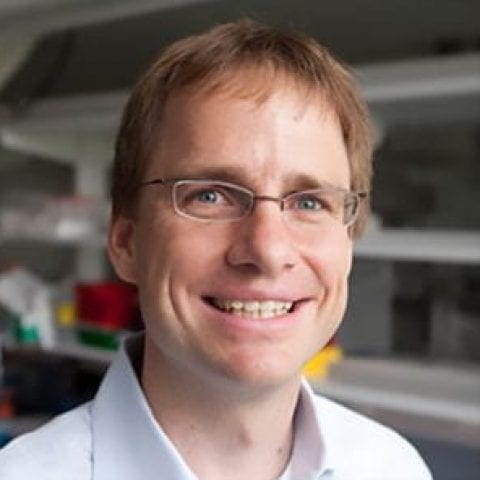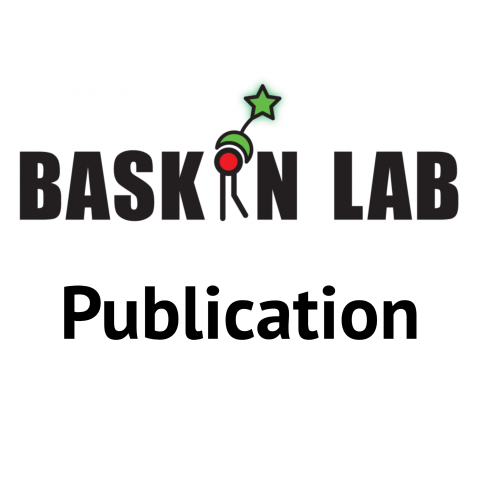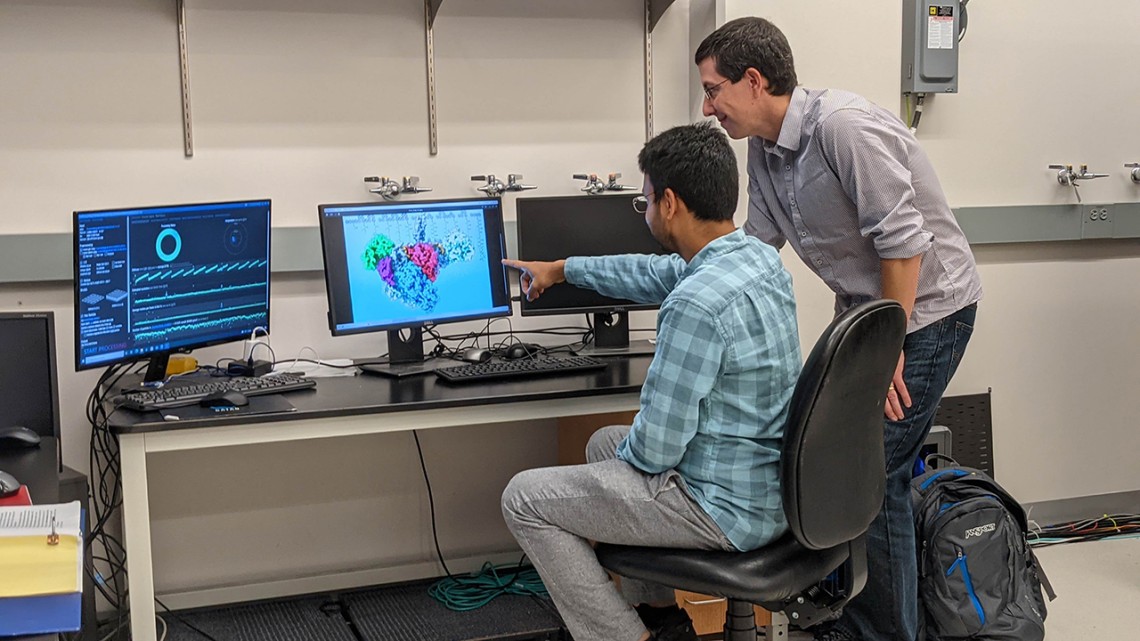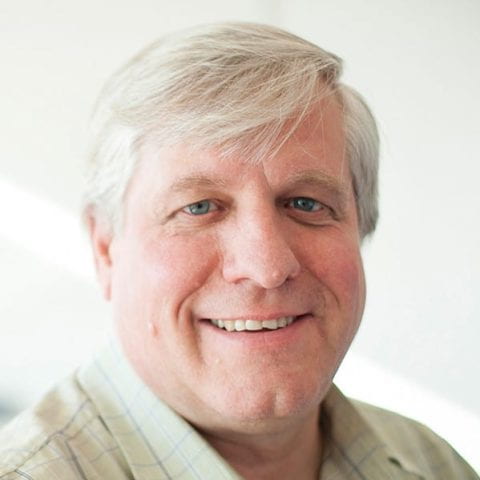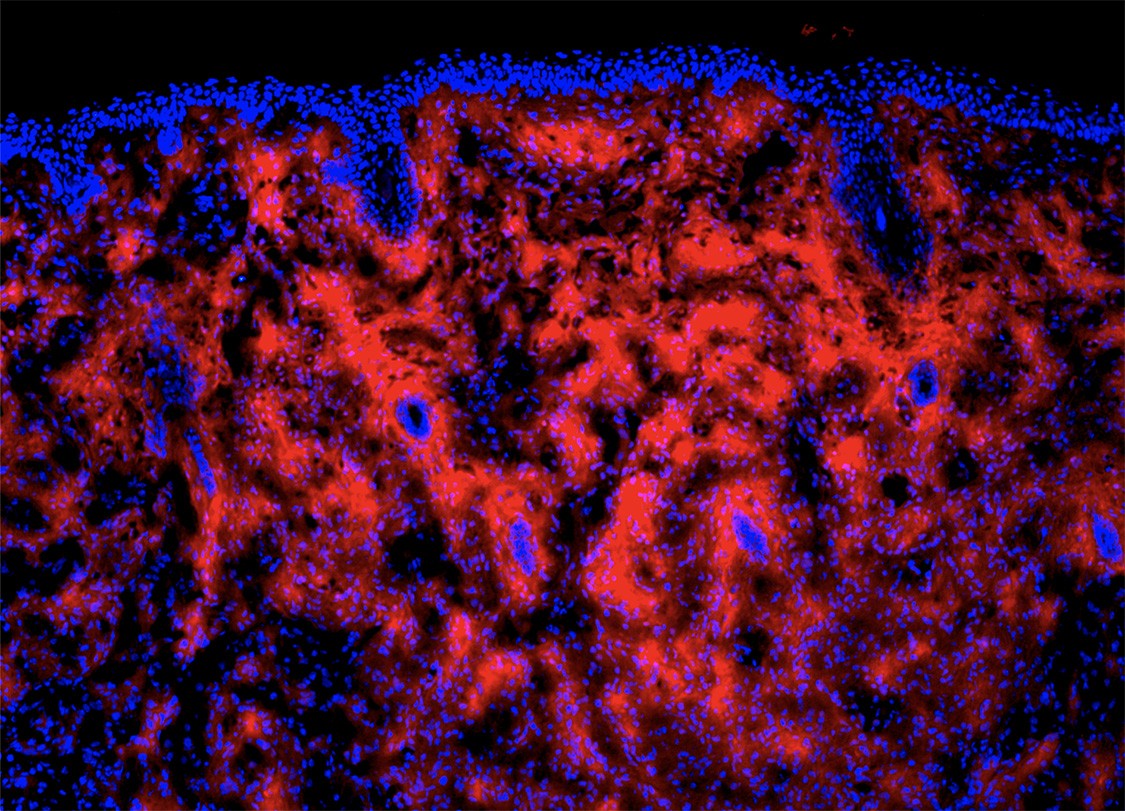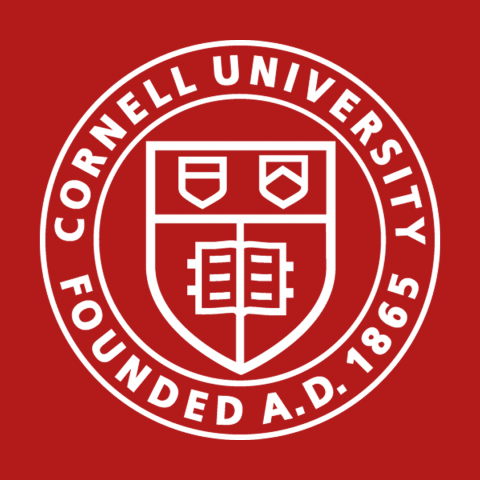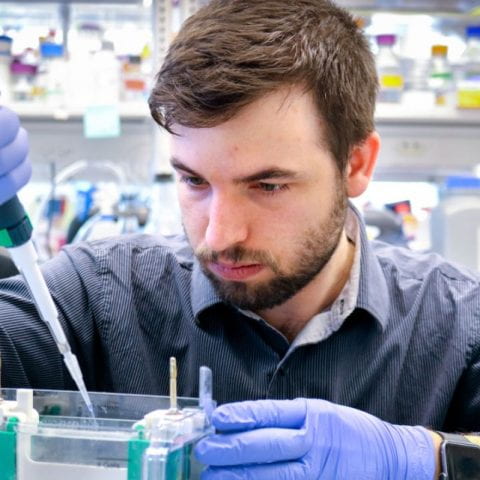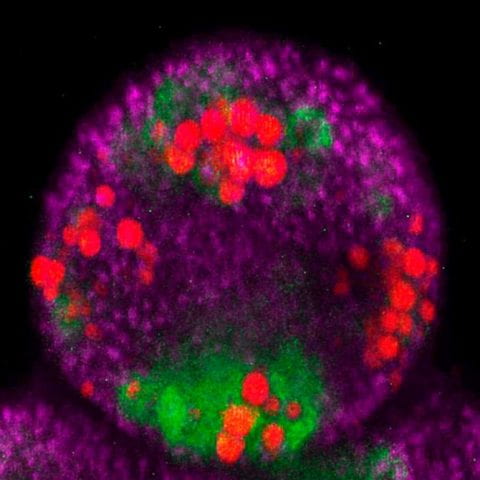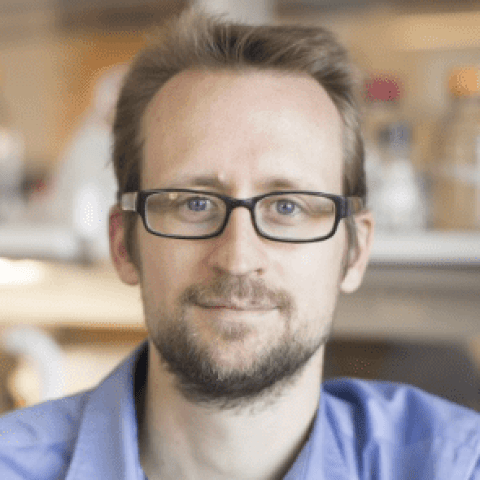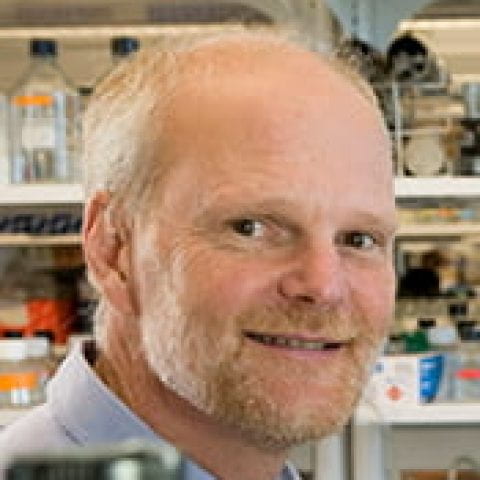News
The American Institute for Medical and Biological Engineering (AIMBE) has announced the election of Jan Lammerding, Professor / Director of Graduate Studies, Biomedical Engineering, Cornell University to its College of Fellows. Dr. Lammerding was nominated, reviewed, and elected by peers and members of the AIMBE College of Fellows for outstanding contributions to the field of the mechanobiology of the cell nucleus and for commitment to graduate...
Alcohol consumption leads to formation of phosphatidylethanol (PEth) via the transphosphatidylation activity of phospholipase D (PLD) enzymes. Though this non-natural phospholipid routinely serves as a biomarker of chronic alcoholism, its pathophysiological roles remain unknown. We use a minimalist diazirine alkyne alcohol as an ethanol surrogate to generate clickable, photoaffinity lipid reporters of PEth localization and lipid–protein interactions via PLD-mediated transphosphatidylation. We use these tools to visualize phosphatidyl alcohols in a manner compatible with standard permeabilization and immunofluorescence methods. We also use click chemistry tagging, enrichment, and proteomics analysis to define the phosphatidyl alcohol interactome. Our analysis reveals an enrichment of...
Cornell scientists have captured a never-before-recorded stage of an antibiotic-producing enzyme’s construction process, opening the gateway for future development of pharmaceuticals, including antibiotics, immunosuppressants and chemotherapeutics. The study describes the atomic structure of one enzyme – a polyketide synthase – at two different stages of its reaction cycle. This is the first time an entire polyketide synthase has been visualized, said Chris Fromme ’99, one of the study’s authors and associate professor in the Department of Molecular Biology and Genetics. Lead author is Saket Bagde, a doctoral student in Fromme’s lab. The study, “Modular Polyketide Synthase Contains Two Reaction Chambers that Operate Asynchronously,” was published in the Nov. 5 issue of...
Scott Emr, the Frank H.T. Rhodes Class of 1956 director of the Weill Institute for Cell and Molecular Biology and professor of molecular biology and genetics in the College of Arts and Sciences, was awarded the Shaw Prize in Life Science and Medicine for the landmark discovery of the Endosomal Sorting Complexes Required for Transport (ESCRT) Pathway – essential in diverse processes central to life, health and...
Associate Professor Adrienne Roeder has won the American Society of Plant Biology “Charles Albert Shull Award”. This award was initiated in 1971 by the Society to honor Dr. Charles A. Shull, whose personal interest and support were largely responsible for the founding and early growth of the Society. It is a monetary award made annually for outstanding investigations in the field of plant biology. The recipient is invited to address the Society at the annual meeting the following...
Melanoma is the most aggressive and deadliest form of skin cancer. Effective treatments are elusive because one type of this cancer develops resistance to available inhibitors, and in another type, no effective drug treatment has yet been found. But a promising pathway to effective drug treatment of both types of melanoma has been identified by Cornell researchers in the signal regulating protein PLEKHA4, found in numerous animal tissues and organs, including the...
A new study identifies a mechanism that makes bacteria tolerant to penicillin and related antibiotics, findings that could lead to new therapies that boost the effectiveness of these treatments. Antibiotic tolerance is the ability of bacteria to survive exposure to antibiotics, in contrast to antibiotic resistance, when bacteria actually grow in the presence of antibiotics. Tolerant bacteria can lead to infections that persist after treatment and may develop into resistance over...
Since the genetics revolution, biologists have been working to understand the roles that individual genes play, often with the help of advanced techniques. One such method, mosaic analysis, has led to many discoveries of the functions of genes. Although mosaic analysis has been widely used in Drosophila, a popular model organism, it is much harder to implement in other organisms. A new paper describes a technique called Mosaic Analysis by gRNA-induced Crossing-over (MAGIC), which uses CRISPR/Cas9 gene editing technology to make mosaic analysis much simpler. Though the proof-of-principle experiment was done in fruit flies (Drosophila), it can theoretically work in any organism where CRISPR methods...
“The phenomena we found is similar to the phenomena of the sparing of the brain, but there are very important differences,” said Chun Han, senior author. “The neurons are protected at the growth level of individual neurons, and they become bigger and bigger by extending their...
In recognition of this important finding, Sulpizio has been named the 2020 recipient of the Harry and Samuel Mann Outstanding Graduate Student Award. The honor, now in its eighth year, provides $20,000 of funding to a graduate student in molecular biology and...
New research in the lab of Weill Institute associate professor Adrienne Roeder looks at the development of Arabidopsis flowers and addresses the fundamental question of how two or more organs or plant parts grow to the same size and shape, which is essential for proper...
Research in the labs of Tobias Dörr and Yuxin Mao examines how a type of enzyme – called endopeptidases – are regulated to break down cell walls in a process that allows bacteria to grow. The findings open the door to developing small molecules that exploit these enzymes to destroy bacterial cell walls and kill the...
Tony Bretscher has been elected as an American Society for Cell Biology (ASCB) Fellow. It is life-time recognition of Tony’s research contributions, his meritorious efforts to advance cell biology, and his service to the...
Jeremy Baskin has been selected by the American Society for Biochemistry and Molecular Biology (ASBMB) to receive the “2020 ASBMB Walter A. Shaw Young Investigator Award” in recognition of his outstanding contributions to lipid research. Jeremy’s lab has invented new chemical sensors and chemical strategies to visualize where and when cells’ make specific signaling lipids. These sensors detect cell signaling across a number of cellular pathways that play a role in disease, including...
What does a cell do with its old deteriorating protein? In this story about cells and their life-vital proteins, Jeff Jorgensen takes center stage. (CornellResearch...
When the DNA in a cell breaks, the cell has two options for repairing itself: It can either chunk the two broken ends back together in a kind of quick, jury-rigged process, or it can grab another DNA molecule and use it as a proofreader to slowly copy the entire strand of DNA. Understanding why, how and when cells choose one or the other of these pathways has crucial implications for fighting cancer. Jennie Sims, the recipient of the 2019 Harry and Samuel Mann Outstanding Graduate Student Award, is making progress on all of those questions. Sims is a fifth-year graduate student in the lab of Marcus Smolka, associate professor in the Department of Molecular Biology and...
A decade ago, Cornell University opened the doors of a pioneering new building, a home for innovative and collaborative life sciences research. The $162 million, 265,000-square-foot Weill Hall, named in recognition of Joan and Sanford ’55 Weill’s support for the life sciences, promised a new era with its open laboratory spaces, an abundance of natural light, state-of-the-art science infrastructure, a business incubator and a two-acre lower level for specialized facilities and services. When Weill Hall opened in 2009, Scott Emr, director of the Weill Institute, predicted: “The next 10 years will be an awesome period of discovery in the biomedical sciences.” A key to that prediction was the interdisciplinary collaborations that would be nurtured in the...
Assistant professors Jeremy Baskin, Song Lin and Brad Ramshaw have been named recipients of Alfred P. Sloan Foundation fellowships, which support early-career faculty members’ original research and broad-based education related to science, technology and economic performance. , Click to open gallery view All three faculty members are from the College of Arts and Sciences. Baskin is a Nancy and Peter Meinig Family Investigator of the Life Sciences in the Department of Chemistry and Chemical Biology and the Weill Institute for Cell and Molecular...
Two female life scientists, a plant biologist and a biomedical researcher, have each received a 2019 Schwartz Research Fund for Women in the Life Sciences award. Contributed by Joan Poyner Schwartz ’65 and Ronald H. Schwartz ’65, the award will give Adrienne Roeder, associate professor in the Weill Institute for Cell and Molecular Biology and the School of Integrative Plant Science, Section of Plant Biology, and Bethany Cummings, assistant professor of biomedical sciences, $15,000 apiece to pursue bold, innovative...
Throughout our lifetimes, from fertilized egg to adult, our cells must divide many times. To do that, cells must copy our whole genome of approximately three billion base pairs every time they divide. Special proteins come together to form a molecular machinery called the replisome, which unwinds the double helix of DNA in a cell, exposing the two strands and synthesizing a new, complimentary sequence of DNA for each. “Imagine going through billions of these little ladders in just a few hours,” says Marcus B. Smolka, Molecular Biology and Genetics. “The replisome has to make a perfect copy. If it makes a mistake, mutations or chromosomal breakage result, and that is the hallmark of...

